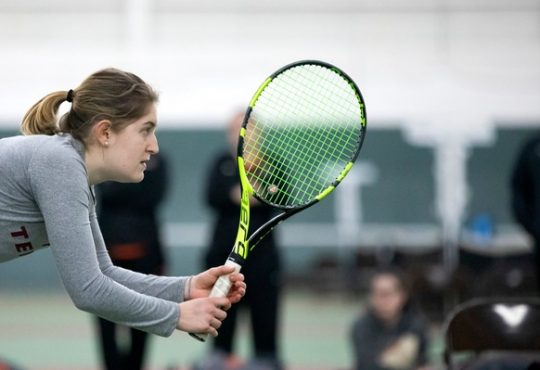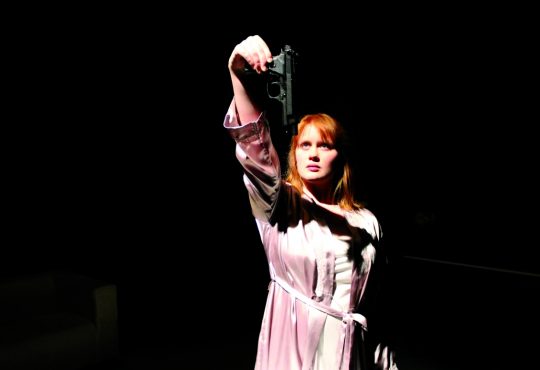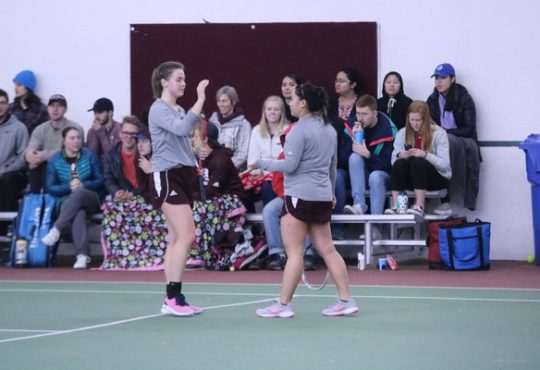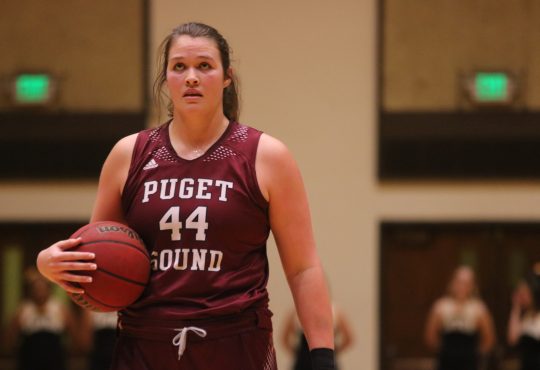This season many Puget Sound athletes will end their collegiate athlete careers as their time in college comes to a close. It is a time of reflection for many of these seniors as they look back on their years in the classroom and on the court. For senior John Stevens, (Portland, Ore.) this time is the end of a four years with the men’s tennis team.
Stevens initially had no intention of playing tennis at the collegiate level. He finished high school ranked 5th in doubles in Oregon and led as team captain. Like many Puget Sound students, he came to the school for its academics and the beautiful campus.
Stevens changed his mind though and tried out for the team his freshman year.
All student athletes understand the work and commitment that it takes to balance class work with the demands of playing a sport. But Stevens had an added pressure this year when he stepped up for a unique leadership position when the team’s previous coach suddenly quit just two weeks before the season. The sudden loss of a coach did not stop the team though. Stevens took on the administrative role of leading the team in their pre-season workouts in the interim time before a new coach could be hired.
“I ran practices for the first two to three months and coordinated with the women’s coach,” said Stevens “I also had to coordinate with coaches from other schools about the Conference tournament in the fall to make sure they knew we were coming, even without a coach.”
Stevens’ duties even included driving teammates to get physicals to ensure they were ready for the season.
Leadership changes have been a reoccurring problem for men’s tennis.
The squad has seen three coaches in Steven’s four years.
It is a problem that has affected the program’s ability to actively recruit players and has deterred players with prior experience from playing for the school.
It is Steven’s hope though that Joe Holland, the teams new coach, will be able to turn things around for men’s tennis.
“He’s great. He’s very enthusiastic and very on top of things. He has a great administrative sense of how the program should be run,” said Stevens. “The biggest thing about him is that he will be here for the long haul to develop recruitment and make this a winning program.”
Steven’s leadership does not end on the court.
He is a founding father of Beta Theta Pi, serves as the men’s tennis representative for the Student Advisory Council and is the fundraising chair for Four Horsemen Investments, a student run investment group on campus.
The last four seasons have not just been about work for Stevens. With a small squad it is easy for the team to bond and become close.
Stevens has seen the team dynamic change over the past four years and describes the current squad as mellow but also enthusiastic about the sport.
Stevens has also traveled with the team for spring break every year, the last two years the team has traveled to Orlando to play teams from around the country.
It is a chance to bond as a team, escape the dreary Tacoma weather, play tennis and even go to Disney World.
Student-athletes like Stevens have to learn to balance the physical and emotional exhaustion of sports with the demands of school work.
This is especially true at DIII schools where athletes are students first, even though there is still a high expectation of dedication and effort on the field.
Though this balance can be tricky, Stevens describes it as rewarding.
“The DIII level is very unique in that the competitive level is not nearly as high, which for me is perfect because I want to play a sport but I don’t want to dedicate my life to it,” Stevens said. “I want to play for the love of the game.”
Stevens has officially ended his collegiate tennis career and is now looking forward to some time off the court.
Like all student athletes he is ending his athletic experience with good memories and friends from his team.
It is a bittersweet end to a tennis career that has spanned nearly twenty years.





